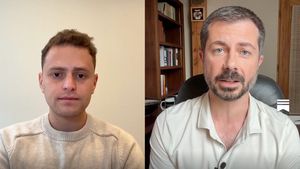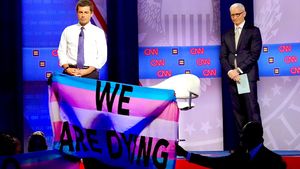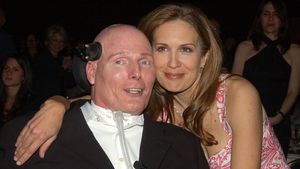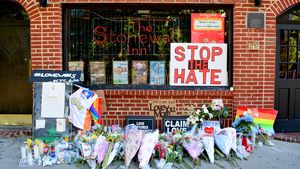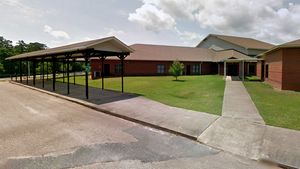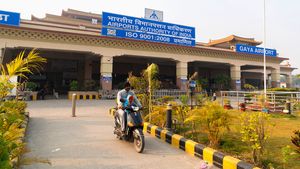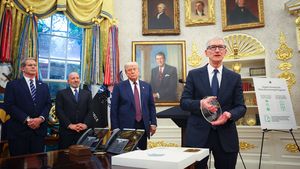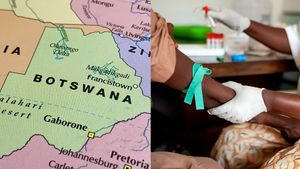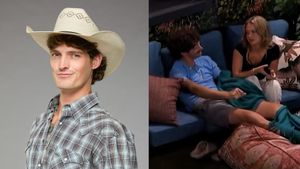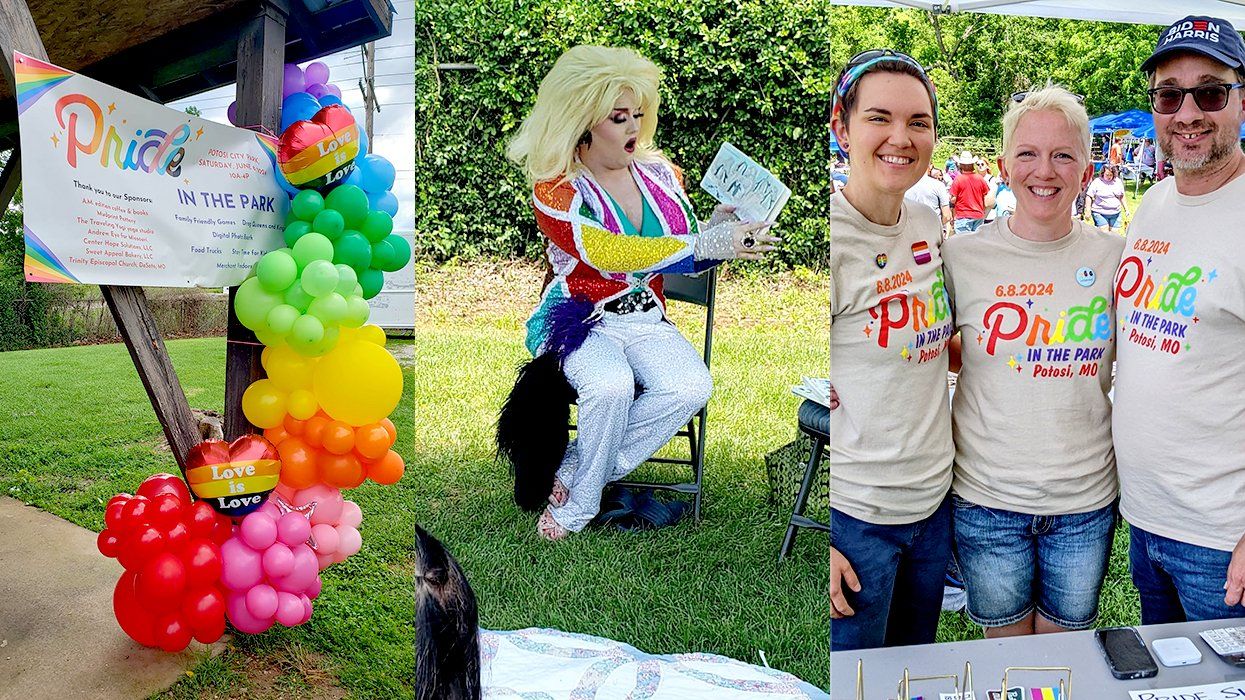
Hillary Hermann; Rodney Wilson
I never thought I'd see the day when my hometown would host a Pride event. But on June 8th, 2024… Potosi will do exactly that.

Rodney Wilson
I thought my friend Chris Owens, a hometown friend, had been bamboozled. After seeing his Facebook post, I couldn't imagine our tiny hometown of just over 2500 was going to do anything like this.

Rodney Wilson
Nestled in rural southeast Missouri, at the foothills of the Ozarks, a county that voted in an overwhelming majority for Trump in 2020 was not planning anything Pride related.

Rodney Wilson
Fifty-five years after Stonewall, Potosi, for the first time ever, was acknowledging Pride.

Hillary Hermann
There would be no mayoral proclamation, city council statement of LGBTQ support, flag-raising, or key to the city. But someone living there—brave, bold, and forward-thinking—was sending a message that it was time for the city to do something.

Andrew Young
That someone is Hillary Hermann. Pride in the Park was her idea.

Hillary Hermann
Her wife, Becky Hermann, a former teacher at the town's sole elementary school, and Hillary's ex-husband, Andrew Eye, a lifelong Potosi resident and current candidate for Missouri House District 144, also liked the idea.

Hillary Hermann
This trio, owners of the town's only bookstore/coffee shop, were on the path to making town history at the Potosi City Park.

Andrew Young
I drove familiar country roads back to Potosi four decades after those carefree days. And for the first time in many years, I turned left at the park entrance I cherished as a child.

Andrew Young
Pride in the Park was slated for Pavilion 3 at the northeast corner.

Andrew Young
A religious group caught wind of queers in the park, and about two dozen of them reserved Pavilion 2, which everyone had to drive or walk by to reach Pavilion 3.

Andrew Young
The women at that pavilion wore long dresses with "unshorn" hair, reminding me of the Pentecostal women I grew up with. They and the children were under the pavilion's shade. The men, of course, were running the show.

Hillary Hermann
The windshields of half a dozen pickup trucks bore conservative-evangelical messages like "JESUS CHRIST IS LORD!!!"; "Perversion is NOT FAMILY FRIENDLY"; and, in rainbow colors, "Need A Real Change? Try Jesus!"

Chris Owens
A preacher brought a sound system to project his declarations about sin and destruction across the soccer field that separates the two pavilions.

Andrew Young
Two men walked to the entrance of Pavilion 3, hoisting handmade signs. I briefly and peacefully chatted with both sets of protesters, who were surprised I could out-quote them on scripture, but most attendees rightly ignored them.

Chris Owens
The religious protesters could easily be ignored.

Andrew Young
My mother warned against the protesters and doubted the event's attendance. "There won't be many there, and they'll all be from St. Louis—the ones who moved away," she remarked.

Andrew Young
Some outsiders attended, including myself and a friend who brought the event to my attention. But most of the 200 were from around Potosi.

Hillary Hermann
The sun was out, the sky was blue, and everyone enjoyed the six-hour event.

Andrew Young
Several local groups were represented at the event, from political associations to the memorial hospital groups to an Episcopal church in the nearby town 30 minutes north. Chris, my friend who shared the post on social media, drove 500 miles with Dan, his partner, from their home in Columbus to be there. Their friend Liz, who flew in from Ohio, joined in as we sat beneath giant shade trees and talked.

Rodney Wilson
Sharing so much small-town familiarity, Chris and I did most of the chatting. His oldest brother Robbie was a big part of that conversation. Robbie was a childhood friend of mine, a next-door neighbor for a few years when we were children growing up on Mineral Street. Like Chris and me, Robbie was gay. Also like Chris and me, he left Potosi as soon after high school graduation as he could. A singer and dancer and actor, he lived in St. Louis and Chicago, trying to make it in entertainment.

Chris Owens
Sadly, none of it was to be. Robbie was among the early ones to be infected with HIV. In October 1987, at 25 years old, he died. His body was brought home to Potosi for burial. He didn’t live to see the advances in HIV treatment and in LGBTQ rights and he wasn’t there to know that his hometown, where his mother still lives, finally celebrated Pride. But on June 8 he was with his brother in spirit and Chris bought a small Pride flag from one of the vendors.
Before returning to Columbus, Chris stopped by the cemetery where Robbie rested and planted a rainbow flag beside Robbie's headstone.
 Going home for Pride: how a amall Missouri town celebrated its first Pride eventHillary Hermann; Rodney Wilson
Going home for Pride: how a amall Missouri town celebrated its first Pride eventHillary Hermann; Rodney WilsonArranged for Pride.com by Nikki Aye
Rodney Wilson was born and raised in Potosi, Missouri. After graduating from high school, he lived in Cape Girardeau and St. Louis, Missouri, and for many years in Massachusetts. He returned to a neighboring Missouri county in 2011 and teaches American history and world religions at the region's community college. He is the founder of LGBTQ+ History Month. A documentary short about his experiences as a high school teacher in the 1990s is called Taboo Teaching and is available here.
Voices is dedicated to featuring a wide range of inspiring personal stories and impactful opinions from the LGBTQ+ and Allied community. Visit pride.com/submit to learn more about submission guidelines. We welcome your thoughts and feedback on any of our stories. Email us at voices@equalpride.com. Views expressed in Voices stories are those of the guest writers, columnists and editors, and do not directly represent the views of PRIDE.com or our parent company, equalpride.










